- April 2, 2024
Preventive Care for Cats: A Vet-Approved Health Guide
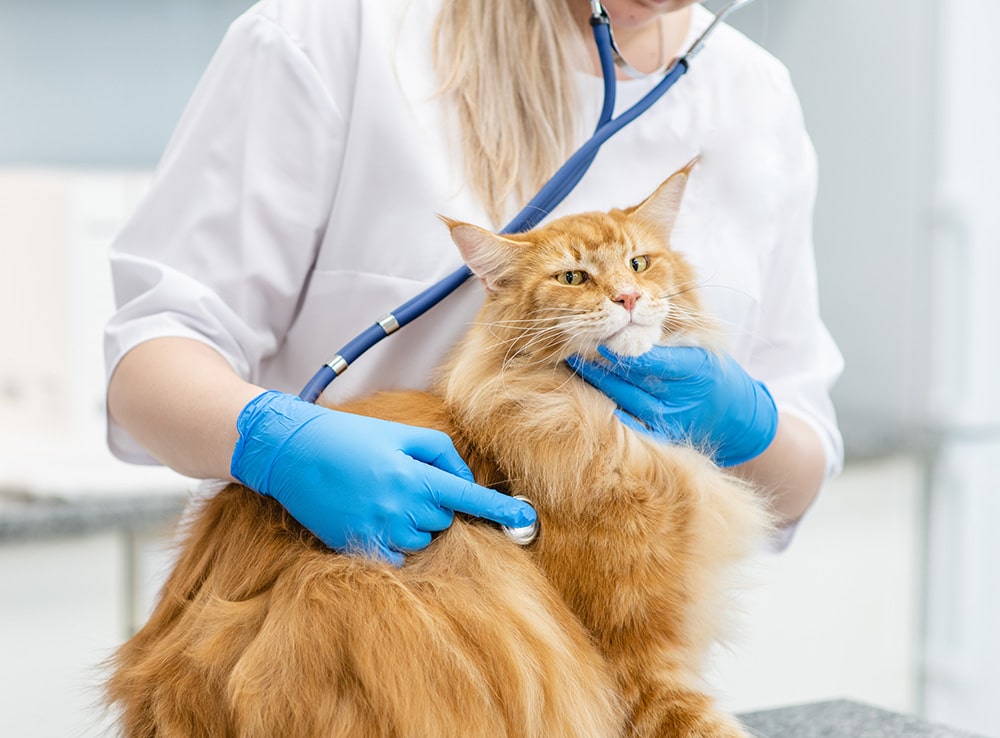
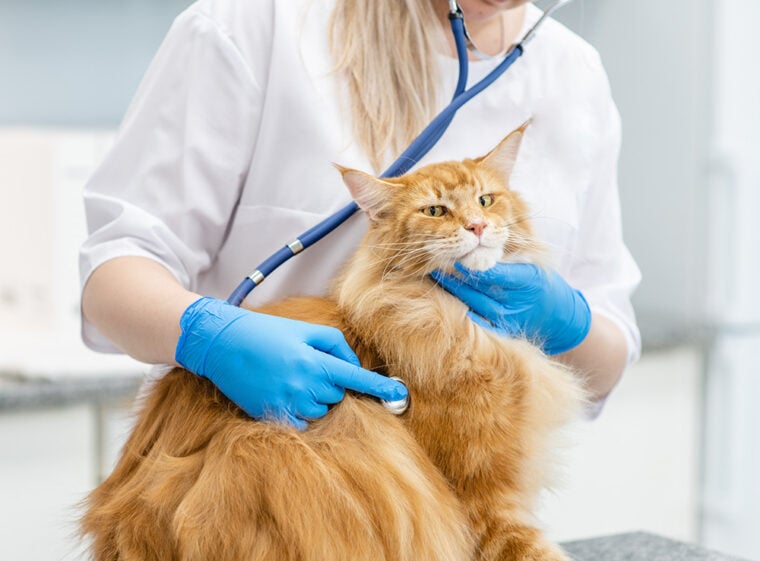
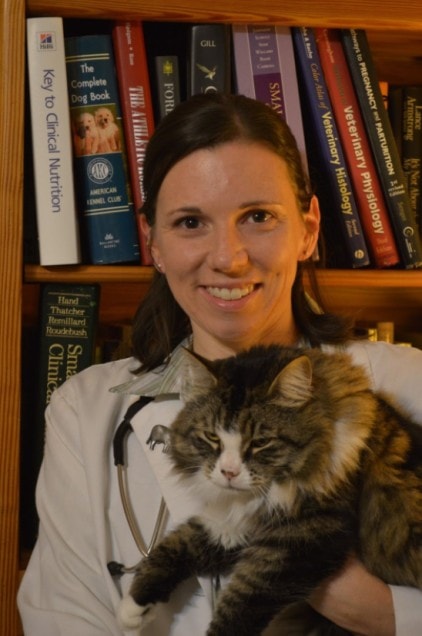
The information is current and up-to-date in accordance with the latest veterinarian research.
Veterinary costs can sometimes become so enormous that some pet owners may have to make heartbreaking decisions because they are unable to pay these hefty bills. This is why preventive care can be so beneficial, as it can reduce or eliminate future veterinary fees while easing the pressure on pet parents’ shoulders. The adage, “prevention is the best medicine,” takes on its full meaning here: It is always more advantageous to prevent a disease rather than treat it, and when treatment is necessary, starting it early yields better results in most cases. Preventive care for our feline companions is undoubtedly a fundamental aspect of responsible pet ownership.
Read on as we look at what preventive care for cats involves, how it works, and when it should be used and answer frequently asked questions about this important topic.

How Does It Work?
Cats age faster than humans, so an annual veterinary exam is roughly equivalent to a human seeing a doctor every 4 to 5 years. The accelerated aging of cats highlights the importance of preventive health care. It can be described as a proactive approach focused on early detection of illness and maintenance of overall well-being. It’s a term that encompasses everything that you and your veterinarian do to keep your beloved cat healthy.
As such, preventive care involves a combination of annual (at a minimum) veterinary visits, vaccinations, parasite prevention, nutrition and weight management, oral health, and lifestyle adjustments. Regular grooming and sufficient physical and mental stimulation for your pet (through enrichment and exercise) are also integral parts of preventive care.

What Are the Guidelines for Feline Preventive Health Care?
The American Animal Hospital Association (AAHA) and the American Veterinary Medical Association (AVMA) created the Feline Preventive Health Care Guidelines (FPHG) to standardize veterinary care.1
These guidelines recommend that all cats have a complete veterinary exam at least once a year, though many cats should be seen more frequently depending on their individual needs and health concerns. The visit should include a review of the cat’s recent history, lifestyle, life stage, daily activities, general behavior, and diet. The physical examination should include dental, pain, and body condition assessment.
Here is an overview of the recommendations included in the FPHG.
Annual Examinations
Even healthy cats benefit from at least annual (preferably biannual) vet check-ups. Older cats or those with pre-existing conditions may need more frequent visits. Exams can reveal various health issues like tumors, heart conditions, kidney problems, and arthritis. These routine check-ups enable your vet to identify potential health issues early, which can lead to more effective treatments and a better prognosis.
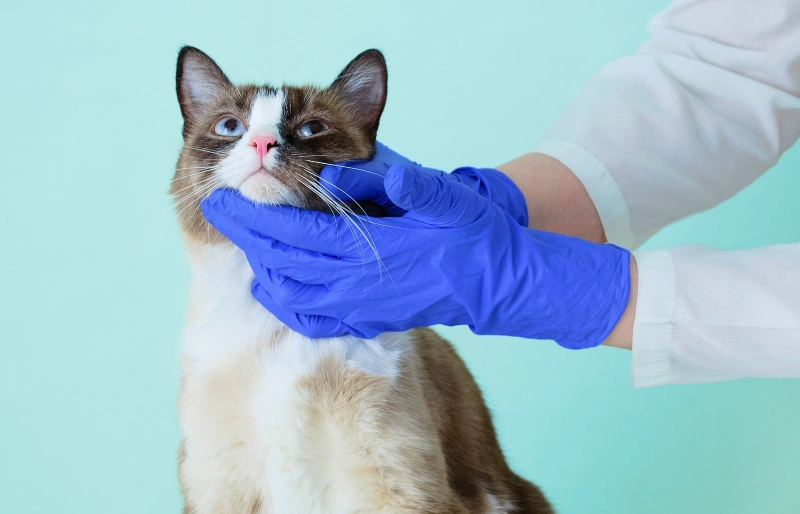
Testing
Cats should be tested for heartworm (especially in warm climates) and intestinal parasites. Annual blood tests, urinalysis, and screenings for diseases like feline immunodeficiency virus and feline leukemia virus may also be recommended.
Parasite Control
Preventive care typically includes parasite control measures that are effective against heartworms, intestinal parasites, fleas, and ticks.
Vaccinations
Vaccinations should include at least core vaccines (rabies, panleukopenia, feline herpesvirus-1, and calicivirus) and for cats at risk, feline leukemia virus.
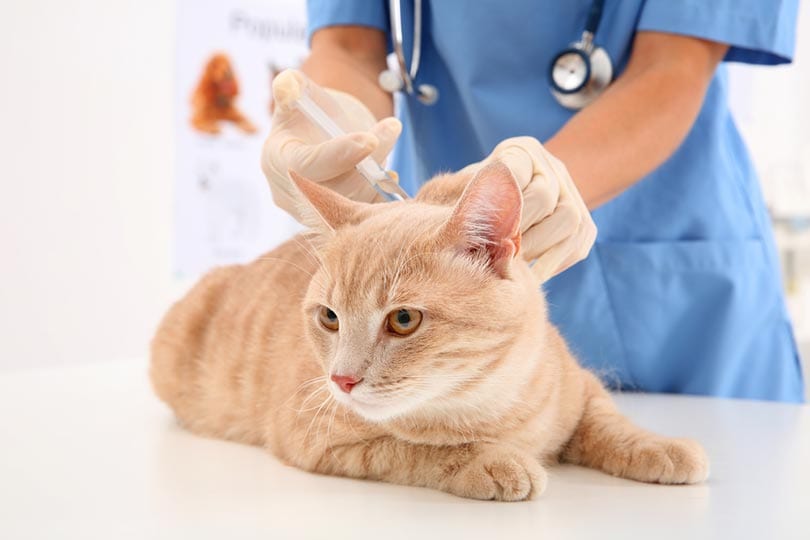
Dental Care
Oral health is an often overlooked aspect of preventive care for cats. However, it is vital to take care of this because dental problems can lead to pain and more serious health problems. Your veterinarian will be able to examine your cat’s teeth and recommend professional cleanings when necessary or advise you on dental care that can be done at home.
Nutrition and Weight Management
Lean cats tend to live longer and have fewer health problems. Your vet can help determine your cat’s body condition score and provide dietary and exercise recommendations to meet and maintain a healthy weight.
Lifestyle Adjustments
Preventive care includes making lifestyle adjustments that promote your cat’s health and happiness. These may include creating a safe and stimulating environment, ensuring regular exercise, and providing mental enrichment through toys and interactive play.
Regular play sessions can help your cat stay happy and healthy. Why not start the play with a fun toy like Hepper’s Catnip Stick Toy? These sturdy toys are double-bagged, bite-proof, and filled with 100% organic catnip. Choose your favorite pastel color and treat your cat to hours of fun!
Hepper Stick Catnip Cat Kicker Toy
- No Filler – Like all the best cat toys our is stuffed with 100% organic catnip. Cheap cat toys with…
- Flexible Play – Simple plush shape is great for biting, scratching and pawing. It can start life as…
- Durably Designed – Our cat safe toys are hand-stitched with a double-lined exterior construction for…
At Pet Keen, we’ve admired Hepper for many years, and decided to take a controlling ownership interest so that we could benefit from the outstanding designs of this cool cat company!

When to Start Preventive Care for Your Cat
Preventive care for cats should be initiated as soon as you bring your new feline companion into your home. It’s a lifelong commitment that ensures that your cat’s health is consistently monitored and maintained. Here are key moments when preventive care for cats is especially crucial.
Kittenhood
Kittens require special attention to lay a healthy foundation for their future. This includes vaccinations, parasite control, and proper nutrition. Frequent veterinary visits are essential during the first few months of a kitten’s life to monitor growth, address any health issues, and ensure that they receive the necessary vaccinations.
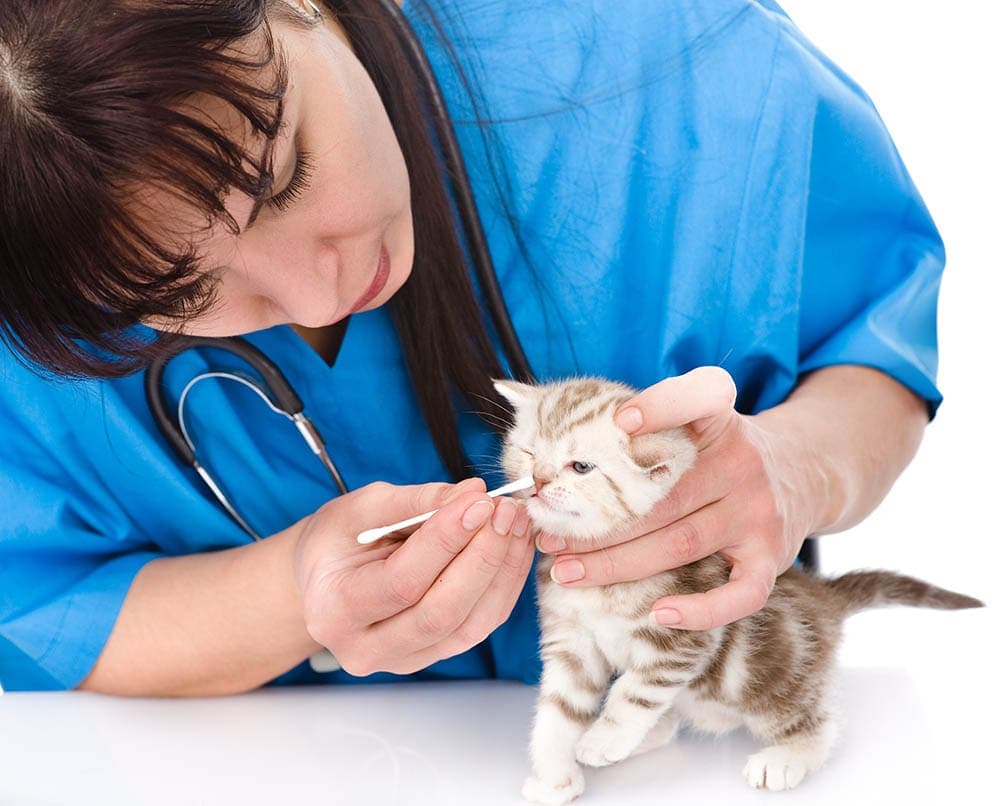
Adult Cats
A cat reaches adulthood around 12 months. Even though they are no longer a frisky young kitten, they should still continue to have annual wellness exams, dental exams, appropriate tick-and-flea medications, and vaccinations.
Senior Cats
Around the age of 7 to 8, cats become more commonly affected by certain health issues, such as osteoarthritis, kidney disease, hyperthyroidism, and diabetes. Therefore, senior cats require more frequent veterinary visits, often semi-annual, to monitor their health and manage age-related conditions effectively.

Special Situations
Certain situations may necessitate additional preventive care. For example, if you adopt a cat with a pre-existing medical condition, your vet may recommend a tailored preventive care plan. Cats that spend time outdoors may also require more frequent check-ups due to increased exposure to parasites, diseases, and potential injuries.
What Are the Benefits of Preventive Care for Cats?
Preventive care has a myriad of benefits for your feline companion:
- Improved quality of life and longevity
- Pain prevention and early detection to prevent suffering
- Reduction of high costs associated with urgent veterinary care
- Reduction in abandonments and euthanasia
- Increased bond and loyalty between client and veterinarian, which often increases compliance with necessary preventive care
- Improving the quality of life of cat owners and their pets
- Early detection of weight gain or loss

Frequently Asked Questions (FAQs)
Is Preventive Care Really Necessary If I Keep My Cat Indoors?
Yes, preventive care is essential for indoor cats! While they may have fewer risks than outdoor cats, indoor cats can still develop health issues like obesity, dental problems, and urinary tract disease that are better treated early on.
How Often Should I Take My Cat to the Vet for Preventive Care?
The AAHA and the AVMA recommend a veterinary examination at least annually for most adult cats. However, kittens, senior cats, and those with specific health concerns may require more frequent visits, typically every 6 months.
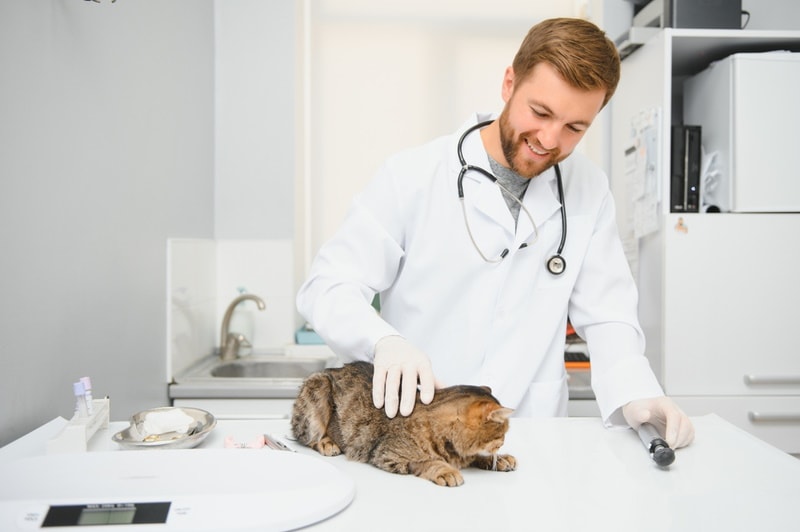
Can Preventive Care Save Me Money in the Long Run?
Yes, preventive care can be cost effective in the long run. By addressing health issues early, you can often avoid more expensive treatments and surgeries that may be required if a condition progresses untreated.
What Should I Do If My Cat Hates Going to the Vet?
Many cats are anxious about vet visits. You can make the experience less stressful by using a comfortable carrier, getting your cat accustomed to it, and providing treats or toys as rewards. Don’t hesitate to consult your vet if you need more strategies to reduce your cat’s anxiety.
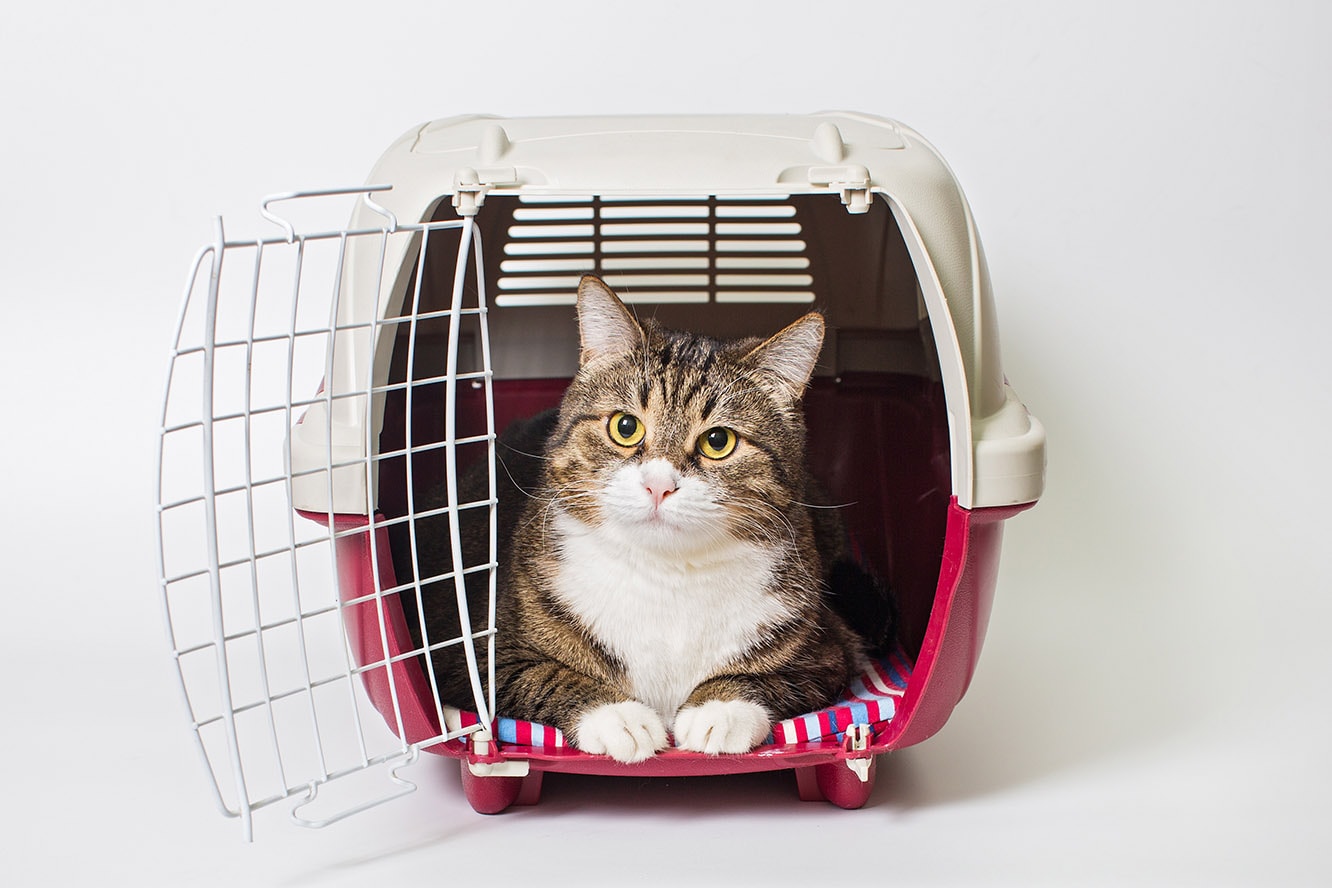
What Role Does Nutrition Play in Preventive Care for Cats?
Providing your cat with a high-quality diet adapted to their needs is one of the best things that you can do at home. Nutrition is a fundamental aspect of preventive care and lifelong health for your feline companion!

Conclusion
Preventive care is an essential step in giving your feline companion the best chance of a long, healthy life. However, annual or semi-annual visits to the vet are only one piece of the puzzle! Indeed, a high-quality diet, regular exercise, and sufficient enrichment are equally important in maintaining your cat’s health. Also, the boundless affection and love that you lavish on your dear feline friend undoubtedly contributes to their optimal well-being and happiness.
Featured Image Credit: Ermolaev Alexander, Shutterstock
Tags
What do you think?
Related Articles

New Puppy Checklist: Gear You’ll Need for Your New Dog
Getting a new puppy is really exciting, but before you welcome them home, it’s important to prepare your space for them. Since puppies need a

How Big Do Mini Poodles Get? Vet Reviewed Average Weight & Growth Chart – Dogster
The information is current and up-to-date in accordance with the latest veterinarian research. Learn more » When you buy a Miniature Poodle, you might not

Can Police Dogs Smell Nicotine? Vet Verified Facts & Info – Dogster
The information is current and up-to-date in accordance with the latest veterinarian research. Learn more » While cigarette sales have been declining steadily for decades,

How Old Is 5 in Dog Years? Vet-Approved Guide to Each Size of Dog – Dogster
The information is current and up-to-date in accordance with the latest veterinarian research. Learn more » A common method for calculating a dog’s age is


